American Education: Shaping the Mind and Soul
By Dr. Gary House
Education has served many purposes throughout American history including moral and social training, literacy and instruction, cultural conformity, and forming a national character. It has arguably been one of the most significant instruments used to shape generations of Americans and to influence the mind and soul. Ultimately, that’s what education is all about. For this reason, educational institutions are a major battleground where culture wars rage and the future of our children and the character of our country hang in the balance.
Foremost in the struggle has been the role of religion in public education. Secular humanism regards Christ and truth as antithetical to one another, having difficulty reconciling the integration of faith and reason. Consequently, it seeks to separate religion from education. While forced to the perimeter at most educational institutions today, many still believe that religion is fundamental to the essence of education at any level. A brief historical review might elucidate the ideological and philosophical differences behind this tension and the current crisis we face in educating our families.
The formative principles for both a Christian and a secular humanistic culture in America emerged within the Renaissance, which spanned the 14th to 17th centuries, and the Reformation of the 16th century. These ideologies developed in America during the Enlightenment age of the 17th and 18th centuries. While the Renaissance laid the foundation for a secular humanistic, man-centered worldview, the Reformation laid the foundation for a Christian, God-centered worldview. Two basic philosophies of education developed from these worldviews. One comes from the Judeo-Christian tradition and is rooted in Scripture, and the other originated as a reaction against the religious ideals of the pre-Renaissance era. The two have competed with each other historically in the scheme of American education and continue to do so today.
Secular Humanism
16th Century 18th Century 20th Century
Renaissance Enlightenment Progressivism
Protestant Christianity
16th Century 18th Century 20th Century
Reformation Awakenings Evangelicalism

Religion had a significant influence on education during the colonial era in America and was often known as the fourth “R.” Religious books were typically used in learning to read, and the school day often included Bible reading, singing hymns, and prayer. However, America experienced a religious decline at the end of the 17th century, and church attendance was at an all-time low. This decline coincided with the rise of enlightenment philosophies, and humanistic ideology surfaced to fill the void. While the Enlightenment was primarily a European movement, it made an impact on the thinking of American leaders and was influential in the shaping of society and education at the end of the colonial era and beginning of the early national era of the 18th century.
America experienced the First Great Awakening in the midst of the Enlightenment era. This awakening, which peaked between 1740-1742, slowed the progress of enlightenment ideology. The awakening also provided a spiritual foundation of Christian principles for the colonies as they approached the American Revolution and influenced the lives of our Founding Fathers and early national leaders. While evangelical religion was the prime factor for initiating formal education in colonial America, this revival had a significant impact on shaping education at all levels. For example, it renewed interest in literacy and learning and stimulated the founding of numerous academies and colleges. It also protected and prolonged the Christian principles that were foundational to colonial education and served as an obstacle to the development of public education during the next century.
Immediately following the American Revolution, the secular humanistic ideas of the Enlightenment threatened to become the dominant intellectual thought of the new nation as deistic and atheistic teaching made its way to America from Europe. Moral and spiritual standards crumbled in an environment of skepticism. While the Second Great Awakening of the early 19th century saved the nation from the encroaching grip of the European Enlightenment, secular ideas still appealed to the intellectual and religious thought of the new nation.
Over the half-century following the American Revolution, national leaders recognized a need for a common school system. The two educational philosophies battled for influence as the common school movement was launched. Although the process of secularization was underway, much of the responsibility of education at all levels was still entrusted to ministers and schools that were under the direct influence of religion. Some educational reformers sought to produce good, patriotic, pious, virtuous citizens through moral education and urged that the Bible be used in schools for this purpose.
The secular ideas of the Enlightenment reappeared at the end of the 19th century with the rise of evolution and science, a revolution of intellectual thought, the expansion of liberal theology and modernism, and the weakening of church control over education. Growing dominance of humanistic thinking continued to challenge traditional Christian beliefs. State control of education escalated in the 20th century through standardization, centralization, accreditation, certification, credentialing, and compulsory attendance laws. Public education became an American icon, and the idea of “schooling” was accepted as a major social institution. The latter half of the 20th century witnessed increased federal spending for public education, more government control rather than local influence, legal support for the teaching of evolution, and laws against prayer and Bible reading in schools.
From colonial days when religion and education were one, to the present where God is not allowed in the classroom, we observe a complete sweep of the spectrum. Humanists are strategic in their efforts to create a world that exempts God and places man at the center of authority and truth. One would expect a humanistic culture to create a humanistic system of education; therefore, secular humanism is the foundation of education for most of our nation today, and its principles are taught as truth. Having walked away from biblical truth, Christians have allowed this transformation and have even enabled it, with many accepting secular humanism as the prevailing model of education.
The conflicts within the sphere of education mirror the tensions and confusions of society at large. Ephesians 6:12 says, “For our struggle is not against flesh and blood, but against the rulers, against the powers, against the world forces of this darkness, against the spiritual forces of wickedness in heavenly places.” The struggle between the purposes of God and the purposes of the world are very evident today. It goes beyond education, but the arena of education is an absolute in terms of a battleground victory. The outcome of the dispute determines who will shape the minds and souls of our students. Since education is key to the transformation of the culture, then education with a biblical worldview is essential. True education places Christ at the center.




